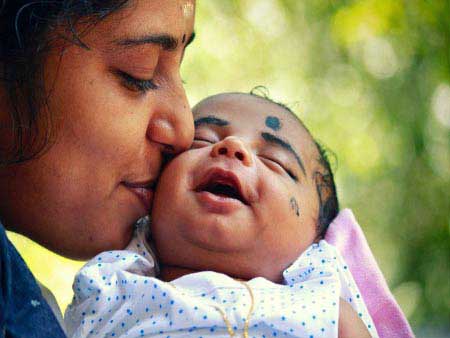
The journey to pregnancy is different for each couple. For some, it happens naturally and effortlessly, while others struggle to conceive. Infertility is believed to be a common problem today. According to the Indian Society of Assisted Reproduction, it currently affects about 10 to 14 percent of the Indian population.
And while, in most cases, individuals have little or no control over the factors that contribute to infertility, some play an important role in boosting fertility. For instance, maintaining a healthy weight is beneficial for conceiving. Of course, it’s important to note that being overweight or underweight does not certainly mean infertility, nor does healthy body weight guarantee fertility. But it is a major factor that can impact your reproductive abilities.
What is a healthy body mass index (BMI) for pregnancy?
Maintaining a healthy weight means different things for different people. That brings us to BMI (body mass index), an indirect measure of body fat calculated by dividing your weight by your height. It’s a numbers game: A BMI between 25 and 30 is overweight while one that’s over 30 is considered to be obese. To optimize a would-be mother’s health before and during pregnancy, most doctors suggest a BMI below 25. However, the healthiest BMI for pregnancy differs from person to person.
Then again, BMI doesn’t tell us everything, so a thorough assessment can be done on undergoing tests suggested by your doctor. Don’t hesitate to ask your doctor questions about weight. As doctors, we are here to address your concerns and not criticize them. Now let’s see how your weight can impact your fertility.
Weight influences the level of estrogen in your body
When you have a healthy body weight, the chances of producing an appropriate amount of estrogen is also higher. But when you’re obese or overweight, the adipose tissues produce more estrogen than necessary, which may hinder regular ovulation. In short, your body requires the right balance of hormones to ovulate properly and too much estrogen disrupts that.
On the flip side, if you are underweight, your ovaries produce less estrogen, impacting ovulation. Remember: During ovulation, the estrogen levels need to rise to help release the egg from its follicle.
Obesity often impacts male fertility, too
If a family friend/doctor/relative/random internet site says that fertility problems are a woman-centric issue, that’s not true. In over a third of couples unable to conceive, male infertility plays a role.
Among men, obesity is commonly associated with lower testosterone, impaired sperm quality, and erectile dysfunction (ED). A recent study showed that in 2,100 men over age 45, the odds of having low testosterone were 2.4 times higher for obese men. The reason behind this is: Fat cells metabolize testosterone to estrogen, lowering the levels of the former hormone.
A higher weight can also impact assisted pregnancy
Women who have a higher BMI may not respond as well to assisted reproductive treatments like IVF. A higher BMI may also increase the risk of pregnancy-related complications. They also tend to miscarry chromosomally normal fetuses at a higher rate than others. The exact reason behind increased miscarriage rates among obese and overweight women are not currently known, but problems like insulin resistance and PCOS may play a role.
And according to studies conducted by the American College of Obstetricians and Gynecologists (ACOG), “babies born to obese women [with a BMI of 30 or greater] have an increased risk of having birth defects, such as heart defects and neural tube defects.” The ACOG also warns that obesity increases pregnancy-related complications.
Obesity prevention tips for adults
Now, you must be wondering what is the best way to lose weight and thereby, increase fertility. As a general practice, you can try the following:
- Swapping alcohol and sugary drinks for water
- Eating more protein to sustain you throughout the day
- Incorporating physical activities like walking to a nearby shop, taking the stairs instead of the elevator, and going for a walk with a friend
- Adding more grains and vegetables to your diet
- Skipping the junk food and choosing healthy snacks like a small portion of plain nuts, fruits, or low-fat yogurt
Struggling to conceive can be devastating and finding out that your body weight is a factor can add even more to the frustration. If you are obese or overweight and losing weight seems to be a significant challenge, speak to your doctor and determine the next steps that’d be ideal for you. They are most likely to suggest a consultation with a registered dietician or offer certain lifestyle changes. Follow that and you will witness a huge difference.
If you are struggling with some kind of eating disorder, it will be helpful if you discuss your issues with your doctor. They can connect you to a dietitian and therapists who can guide you through any complex issues about weight and food habits.
Don’t forget to mention your current medications. Doing so will ensure that they are safe to take during your fertility cycle. Remember that you need to discuss your problem with us – fertility specialists – to understand if something besides your weight is contributing to infertility.





